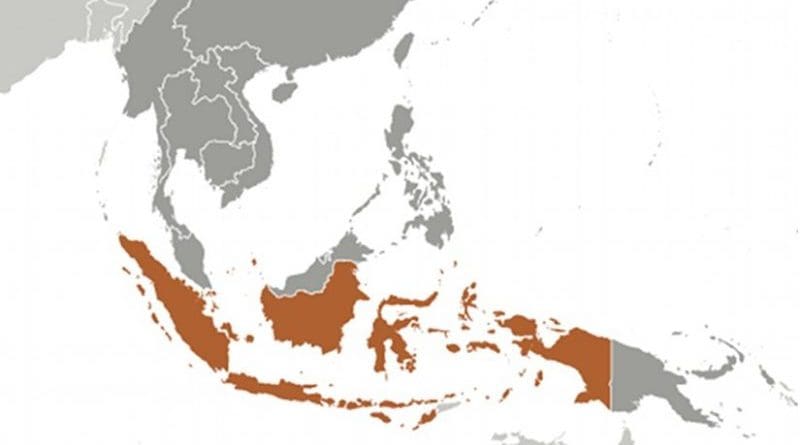Indonesia: Govt Forces Kill Papuan Rebel Commander Near Grasberg Mine
By BenarNews
By Ronna Nirmala
Government security forces in Indonesia’s easternmost Papua province have killed a separatist commander whose group carried out deadly shootings at the Grasberg mine, police said Monday.
Hengki Wanmang (alias Hendrik Wanmang) was a regional commander of the West Papua National Liberation Army (TPNPB) who claimed responsibility for the March 30th killing of Graeme Thomas Wall, 57, a New Zealand national working at the Grasberg gold and copper mine operated by U.S.-based Freeport-McMoRan Inc.
Hengki was killed Sunday during a raid by 196 police and 92 soldiers on a separatist base in Mimika Regency, Papua police chief Paulus Waterpauw told a press conference in the provincial capital of Jayapura on Monday.
“Confirmed dead. The profile and the attributes he used match with the photo provided by another member of the separatist group we caught earlier,” the police chief said.
Security forces also injured three other members of the separatist group, but could not confirm their identities because they escaped into the surrounding forest.
“The team saw three KKB members being shot, but we could not confirm their identities,” said Paulus, using an acronym that stands for “armed criminal group” in Indonesian.
The slain man had been operating in the area for some time although he became a commander only in 2018, Paulus said.
In 2009, Hengki was involved in a series of attacks and hostage-takings around the Grasberg mining area that killed three people and injured 11, including police, the police chief said.
“Hengki was the person who invited KKB members in the Central Mountains region to enter Tembagapura district and carried out attacks in the Freeport area,” he said.
Police confiscated homemade weapons, 381 bullets, 22 million Rupiah (US$1,484) in cash, mobile phones, and three separatist flags in Sunday’s raid, he said.
“We will keep hunting them down, in life or death,” Paulus said.
‘We will counterattack’
A TPNPB spokesman, Sebby Sambom, said the killing of one of the group’s commanders was a call to war against Indonesian authorities. He claimed that the group has 33 regional commanders, each leading 2,500 personnel.
“We will counterattack. This is war. War needs retaliatory action,” Sebby told BenarNews via text message onMonday.
“TPNPB will not back down and will not surrender even if one of our leaders was shot dead by the enemy forces,” he added.
“We also have non-permanent members, they are the Papuan people. So we believe that one day, when TPNPB-OPM announces war, all fighters and the people will definitely join in,” said Sebby.
The provinces of Papua and West Papua make up one-fifth of Indonesia’s landmass but only 5.9 million of Indonesia’s 250 million people live there.
Tensions rose in Papua in December 2018 after separatist rebels allegedly killed 19 members of a crew building a highway in Nduga Regency. Authorities immediately sent more than 750 soldiers and police to the region.
According to the Institute for Policy Analysis of Conflict (IPAC), a Jakarta think-tank, Paniai Regency is the main stronghold of Papuan separatist groups, followed by Puncak Jaya and Mimika regencies.
A low-level separatist conflict has simmered since the 1960s in Papua and West Papua, a region at the far eastern end of the Indonesian archipelago that declared independence from Dutch colonial rule on Dec. 1, 1961.
In 1963, Indonesian forces invaded the region and annexed it. Six years later, the region held a referendum in which security forces selected slightly more than 1,000 people to agree to Papua’s formal absorption into the nation, according to human rights advocacy groups.
Papua was rocked by weeks of violence in August and September last year after news about allegations that security forces on Java Island had mistreated Papuan students ignited mass protests. The unrest left more than 40 people dead.

